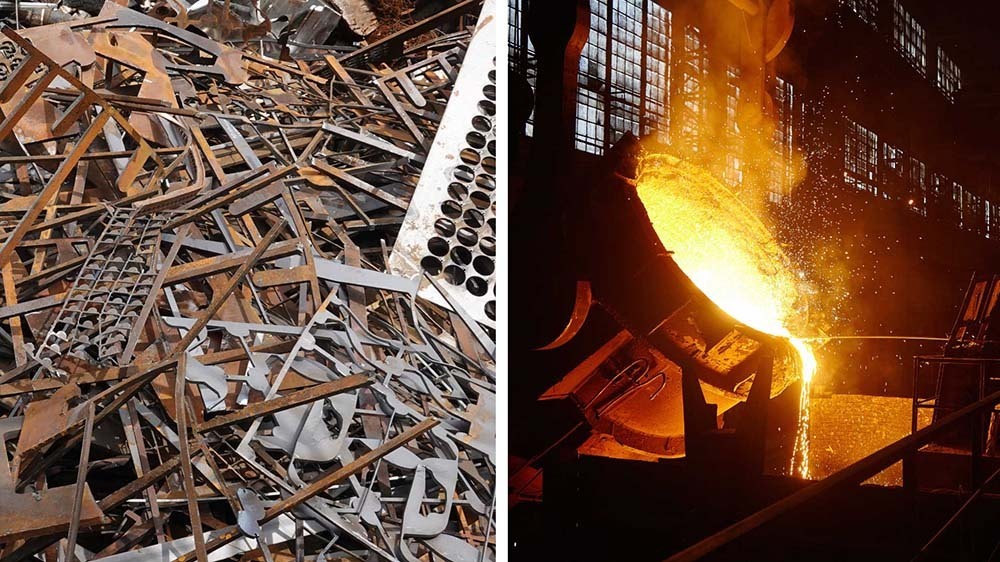Celebrating Earth Day: The Importance of Recycling Steel

Steel is one of the most recycled materials on Earth!
As we celebrate Earth Day, it is crucial to reflect on sustainable practices. Recycling plays a significant role in preserving natural resources and reducing environmental harm.
The Importance of Recycling Steel
Recycling steel offers numerous environmental and economic benefits. First, it conserves valuable natural resources by reducing the need for raw materials like iron ore and coal. Second, it can extend the lifespan of these resources and minimize the environmental impact of mining and extraction.
Furthermore, recycling steel is energy-efficient. Recycling steel saves over 60% of the energy needed for new steel production.
Steel is 100% recyclable, meaning it can be recycled indefinitely without losing its properties or quality; materials are reused and recycled rather than disposed of after a single use.

The Recycling Process
Recycling steel typically involves several stages.
- Collection: Scrap steel is collected from sources such as old cars, appliances, construction materials, and industrial equipment.
- Sorting: Scrap steel is sorted based on type and quality, with contaminants removed.
- Processing/Shredding: Scrap steel is shredded into smaller pieces for melting.
- Melting: Shredded steel is melted in furnaces to form molten metal.
- Purification: Impurities are removed from the molten steel through fluxing and slagging.
- Refining: Further refining adjusts the steel's composition and removes remaining impurities.
- Casting: Molten steel is cast into molds to form semi-finished products.
- Manufacturing: Semi-finished products are processed further to produce final steel products.
How You Can Make a Difference
- Recycle Steel Products: Whether it's old appliances, automotive parts, or structural steel, recycle steel whenever possible.
- Support Recycling Initiatives: Advocate for increased recycling programs and infrastructure in your community.
Helpful Links
Categories: Everything else